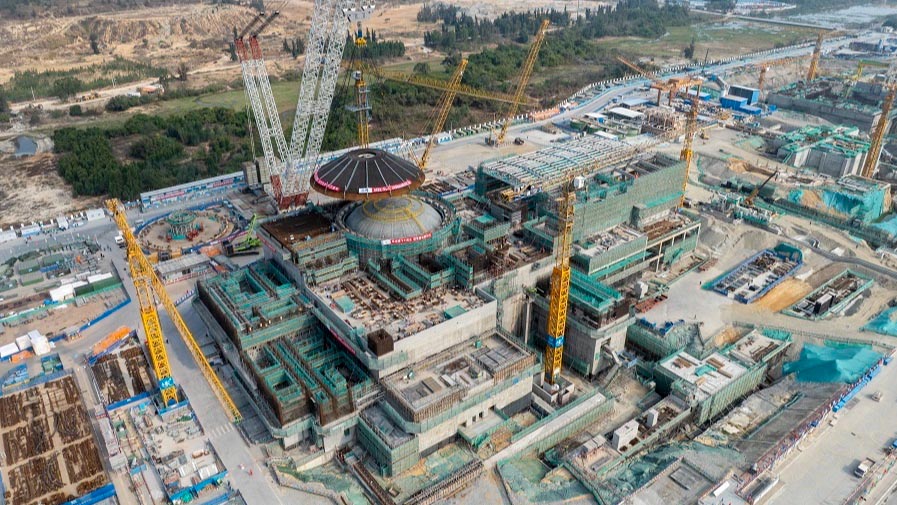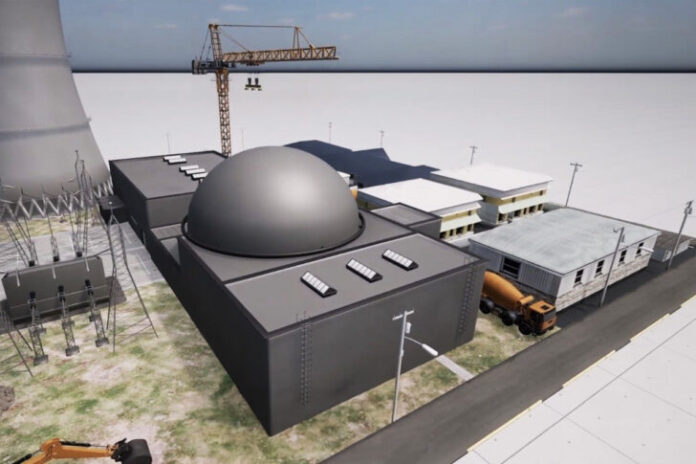BANGKOK — Thailand is taking initial steps toward integrating nuclear power into its energy landscape as the Energy Regulatory Commission (ERC) plans to sign a Memorandum of Understanding (MoU) with the Office of Atoms for Peace on November 15. This agreement is set to establish a committee to develop an operational framework for nuclear power, hold public hearings, and promote affordable, low-emission energy.
The project focuses on building small nuclear power plants with capacities below 300 megawatts (MW) using advanced Small Modular Reactor (SMR) technology, which is designed for high safety and minimal land use. According to the Federation of Thai Industries (FTI), this technology could reduce electricity costs from 4 to 2 baht per unit, significantly lowering energy expenses in the country.
ERC Secretary-General Poonpat Leesumbatipaiboon explained that nuclear power is gaining global traction as a clean energy source, bolstered by improvements in safety technology. The new committee will involve representatives from the Ministry of Energy, the Electricity Generating Authority of Thailand (EGAT), the Ministry of Science and Technology, and other relevant agencies, all tasked with creating regulations, educational materials, and licensing procedures to support future nuclear initiatives.
Thailand’s Power Development Plan (PDP) for 2024 envisions the first nuclear power plants coming online by 2037, contributing to the country’s clean energy target of 51 percent.

EGAT recently organized a media tour of an SMR facility in Hainan, China, where the local government has set ambitious clean energy targets. EGAT Governor Thepparat Theppitak emphasized that SMR technology provides both stability and environmental benefits, operating around the clock without carbon emissions. Although SMRs are more expensive initially than traditional thermal plants, they offer extended operational lifespans and lower fuel costs.
Despite these plans, public acceptance remains a significant challenge due to past nuclear incidents like Chernobyl and Fukushima. Legal barriers to private investment in nuclear remain low, but EGAT’s involvement will be crucial in establishing Thailand’s first nuclear infrastructure.
Limited uranium deposits have been found in various regions of Thailand, but quantities are insufficient for local sourcing. The country may import uranium from countries like Mongolia, Ukraine, or Australia if nuclear plants are established. According to the Department of Primary Industries and Mines, larger deposits may eventually be discovered in sandstone-rich areas such as the Korat Plateau.
FTI Vice President Isares Ratanadilok Na Phuket noted that SMRs, due to their continuous operation and safety features, could potentially cut electricity prices in half if placed far from populated areas. Hydrogen energy and other clean alternatives are also being explored, but any nuclear project would likely be led by EGAT to align with Thailand’s broader energy goals.
While the Board of Investment (BOI) currently offers no incentives for nuclear energy, it may reconsider this as nuclear enters Thailand’s energy development roadmap.



